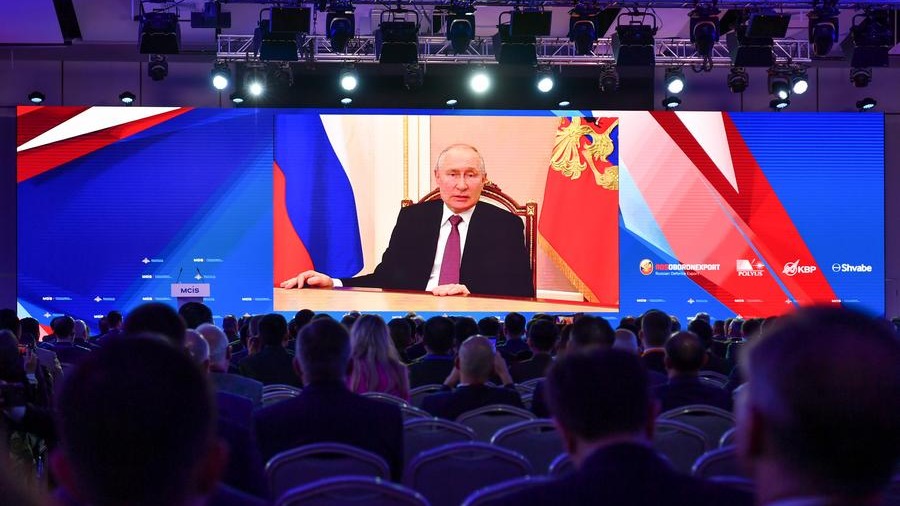In a thought-provoking address during the 11th Moscow Conference on International Security, Russian President Vladimir Putin highlighted the remarkable ascent of a new multipolar world order. Against the backdrop of a shifting global landscape, Putin underlined the readiness of nations to assert their sovereignty and safeguard their unique identities. This pivotal shift, as he articulated, bears the potential to foster steadfast and sustainable global progress, thus serving as a conduit for resolving complex global issues.
Global Shift towards Multipolarity Emphasized by Putin:
Diving into the crux of the matter, Putin emphasized the prevailing trend of countries asserting their sovereignty and safeguarding their cultural and national heritage. This resolute stance, he stated, signifies a momentous move towards a multipolar world order, where power dynamics are diversified and harmonized. Addressing an attentive audience, the Russian leader succinctly encapsulated the essence of this transformation: “Most countries are ready to assert their sovereignty and defend their national interests, traditions, culture.”
Benefits of a Multipolar World Order for Global Challenges:
The far-reaching implications of a multipolar world order were not lost on Putin, as he articulated how such a framework could pave the way for overcoming pressing global challenges. Foreseeing a promising future, he elaborated that this multipolarity could lay the foundation for unswerving and sustainable worldwide advancement. From societal and economic dilemmas to technological advancements and ecological crises, Putin visualized a collective effort nurtured by this paradigm shift. This transformation, he asserted, would enable nations to collaboratively address issues that transcend borders and foster shared solutions.
Concerns Over Escalating Conflicts and Power Play:
However, Putin’s address was not devoid of cautionary notes. With a discerning eye, he pointed towards those who exploit conflicts for their own gain, aggravating global tensions and perpetuating discord. Using poignant language, he condemned these actors, stating that they seek to “benefit from human tragedy” by fostering division among nations, imposing subservience, and appropriating the resources of other sovereign states. Notably, he raised concerns about the United States’ ambitions, alleging that its actions in the Asia-Pacific region are geared towards reshaping established international relations to its advantage. The Russian leader voiced his reservations about the United States’ Indo-Pacific strategies, which, according to him, strive to form U.S.-led military and political alliances.
NATO’s Aggressive Posture and Escalation of Conflicts:
Furthermore, Putin’s critical scrutiny extended to NATO member states, which he accused of augmenting their offensive capabilities and employing both military and non-military tactics to exert pressure on other nations. He shed light on their actions, revealing that substantial funds were being funneled into Ukraine, alongside equipment supply and ongoing military support. According to Putin, these actions are amplifying the ongoing conflict, ensnaring additional nations, and heightening geopolitical tensions.
In conclusion, President Putin’s address at the 11th Moscow Conference on International Security resonated with a clear vision of a multipolar world order, marked by diversified power dynamics and a unified approach to global challenges. This paradigm shift, as he eloquently expressed, carries the potential to drive continuous and sustainable global development. While applauding the spirit of nations asserting their sovereignty, Putin’s cautionary words about exploiting conflicts for personal gain serve as a reminder of the intricate complexities that must be navigated as the world embarks on this transformative journey.















